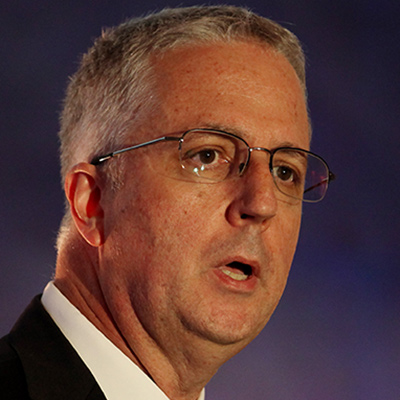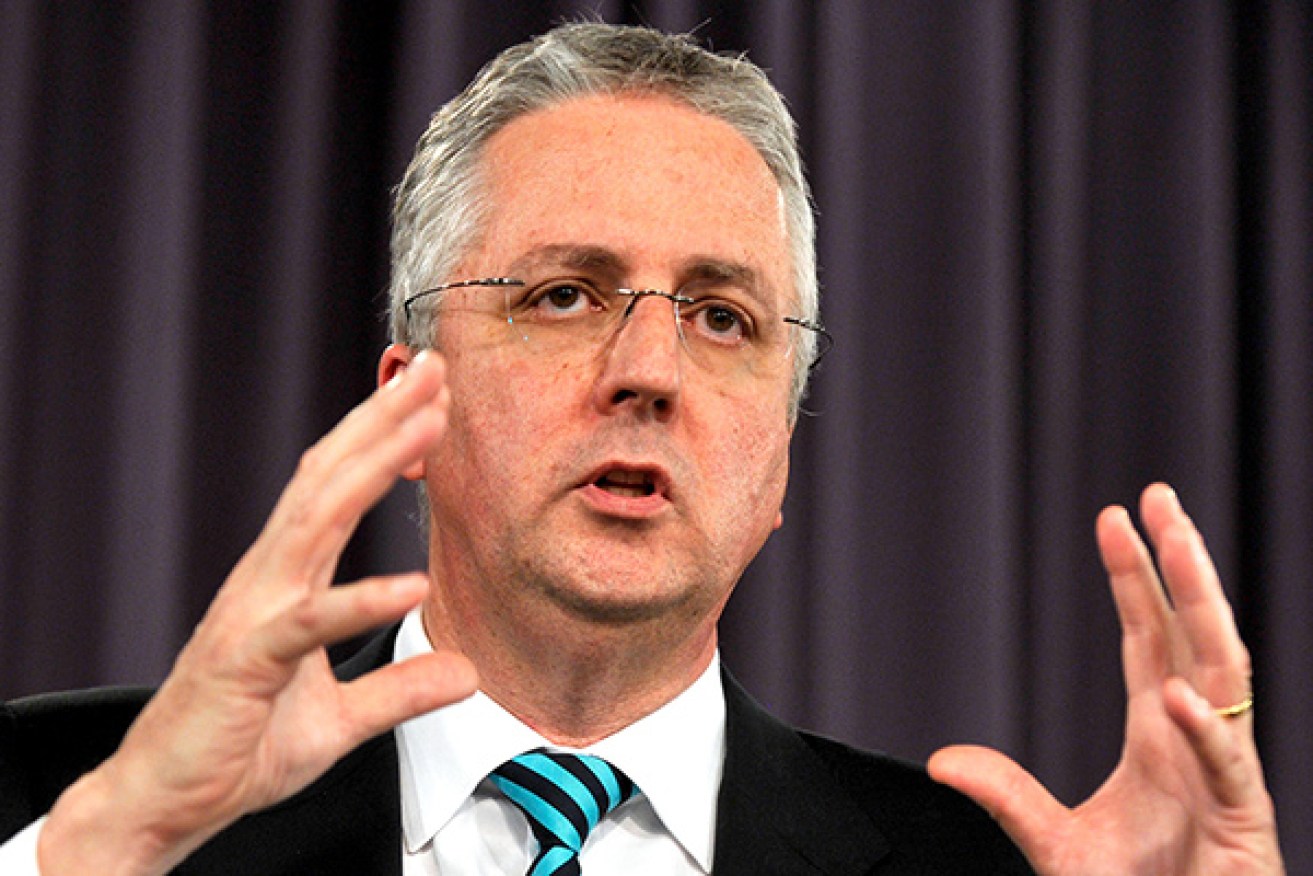Mark Scott speech: defending the independence of the ABC


A question was posed this week. Whose side is the ABC on? It’s not the first time it’s been asked. Menzies, Hawke, Neville Wran—they all asked it in their own inimitable ways.
It’s a good question. And while it’s often asked with a rhetorical flourish, a question about the role and nature of the public broadcaster in these highly polarized and partisan times, it’s a fair one.
Sometimes it seems questions like this are framed to cause doubt. To challenge what we have always felt. And while rhetorical questions are designed to be posed and not answered, I want to answer this one.
It’s important. Whose side is the ABC on?

ABC Managing Director Mark Scott. Photo: AAP
Well in any team, you can be playing on the same side, but often you will be playing in a different position, with a different role and responsibility. You’re on the same side, but with a different job to do. You do your bit and you work together to make the team successful.
The ABC is clearly Australian, it’s on the side of Australia. The A in ABC is for Australian. And the part we play, what we do for the side, is a vital one, central to our culture and our democracy – that of being an independent public broadcaster.
The ABC’s Charter covers our responsibility to Australians who live in this country and also Australians living overseas. Our wide, diverse programming reaches Australians everywhere across the land.
Inside the ABC, we talk about wanting to be the independent home of Australian conversations, culture and stories.
Central to the legislation establishing the Corporation is the independence of the public broadcaster. Funded by Government, accountable to the public for its performance, governed by a Board of eminent, independent Australians.
And of course, it’s precisely this independence that shapes the ABC as a public broadcaster, not a state broadcaster.
A state broadcaster is the communications arm of the Government. Its role is to communicate the messages of the Government—and certainly not to do anything that undermines the Government.
I hope no-one seriously wants the ABC to be a state broadcaster.
We know the examples. North Korea and Russia. China and Vietnam. There are many others.
The ABC Act does not envisage the ABC as another branch of Government public relations. Instead, it asks the ABC to provide an independent national broadcasting service. And the Board is asked to maintain that independence.
There are good reasons for independence from Government, just as there are good reasons for an independent judiciary.
Australians cherish freedom of expression, and they cherish debate. They cherish the role of the ABC in facilitating both.
When we were planning television in Australia sixty years ago, we came up with our own model, an Australian model that offered us the best of both worlds.
When it came to the public broadcasting side of it, we didn’t do what the British had done when they made the BBC a monopoly.
We didn’t do what the Americans had done, creating public television only later on, almost an afterthought of the Johnson presidency.
We didn’t do what Italy had done, with three national channels allocated to three leading political parties. Nor did we follow the French example, where the top jobs at the public broadcaster would change when the party in Government changed.
In Australia, when Governments change, we could change the public broadcasters with them, align them to more positively reflect the Government’s agenda, to do the Government’s bidding.
But you would have to change the ABC Act.
And you would have to destroy the ABC as we have known it for eight decades.
Instead, Australia has an independent ABC and that independence is key to its credibility. It’s why trust in the ABC is streets ahead of commercial media.
The history of the ABC is a history that shows the anger and frustration of Government at ABC broadcasts from time to time.
In my nearly nine years at the ABC, when we’ve had Governments both Labor and Liberal, there have been ABC stories that generated the wrath of the Government of the day. Monday’s Q&A is but the most recent example.
Of course there will be stories that frustrate politicians. Of course there will be coverage that’s not of their choosing. But my experience has been that most politicians have understood the importance of the independence of the public broadcaster from political pressure and interference. It’s a mark of the maturity of our democracy.
Most—though some, aren’t reluctant to turn up the heat now and again to see what happens.
Long may that independence continue.








